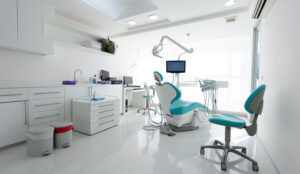Overcoming PPE Kit Shortage with 3D Printed Face Shields

The COVID-19 pandemic is growing at an exponential scale, and the health workers & hospital forefront staff are facing dire challenges amid PPE shortage. This disruption took a toll so fast, and not a single industry was prepared to handle the consequences. Hospitals and emergency treatment centers fall short of necessary safety equipment.
In these times, 3d printing companies and individuals are coming to the forefront to fill the void between supply and demand. With additive manufacturing, some important PPE components such as face shields, gloves, masks, and medical equipment can be printed as a stopgap.
Production of face shields with 3d printing solutions
Printing some safety equipment including face shields that are not tightly bound to safety standards as masks are more affordable than conventional production. Coming to the shields, there are two main components: one is the visor that goes around your head, and the other one is the clear plastic shield.
Many 3d printing medical equipment companies are leveraging government-approved design to print shield visors to fulfil the local demands. As there are no official standards for printing from the authorities, organizations, and individuals are applying the best possible approach to print them.
Many 3d printing medical companies are producing as much as 3,000 shields per day to help the local hospitals. This is just a hint about what additive manufacturing is capable of doing when done on a large scale.
Find : 6 Benefits to Investing In 3d Printing
Underlying challenges in 3d printed face shields
As such, there is no serious safety threat in using printed shields, but the major challenge is meeting commercial regulations. For a better perspective — Some countries like Europe have certain safety compliances like CE Kitemark, which signifies a COVID19 face mask or other equipment are safe to wear.
When additive manufacturing companies are volunteering and providing 3d printing service in Victoria and other places, it isn’t easy to meet those standards. However, in the case of face shields, the safety threat is at the lowest as it doesn’t have anything functional in it.
Coming back on the compliances like CE Kitemark, when the additively printed shields and masks will not follow it, they cannot be brought on the commercial stage. But, many companies are overcoming this issue by supplying locally printed equipment for free to make sure there is a flow of supply.
Related : Top Taulman Filaments to use for your 3D Printer in 2018
Additive manufacturing acting as an emergency support
Companies are acting as a strong pillar by offering services related to 3d printing medical in Australia and other countries. This is a firm answer to the world’s pandemic, and the additive industry is capable of doing more when traditional processes fail to deliver. If we look at some of the advancements made possible by the 3d printing, they are many like:
- 3d printed surgical mask for medical workers and health teams
- 3d printed ventilator and oxygen valves to fill the shortage in medical centers
- Printed safety tools like sanitizer holder, reusable door handles and more
- Foldable printed quarantine compartments with sufficient air supply
- Printed respirator masks to overcome the supply of N95 masks
And there are many such PPE and medical equipment that 3d printing companies are producing in bulk to help the health workers. Companies like Zeal 3d printing in Melbourne are going the extra mile and aiding the medical industry in maintaining continuity without risking health and safety.
Additive manufacturing organizations have also initiated online helpline hubs for assisting the medical centers. In case of urgent demand, health workers can contact the helpline platforms and draft their orders there. This type of faster communication is reducing the delivery time significantly, and the healthcare centers are getting timely help. Additive manufacturing is proving its potential regardless of complexities, and manufacturers are continually improving technologies to support the cause.






